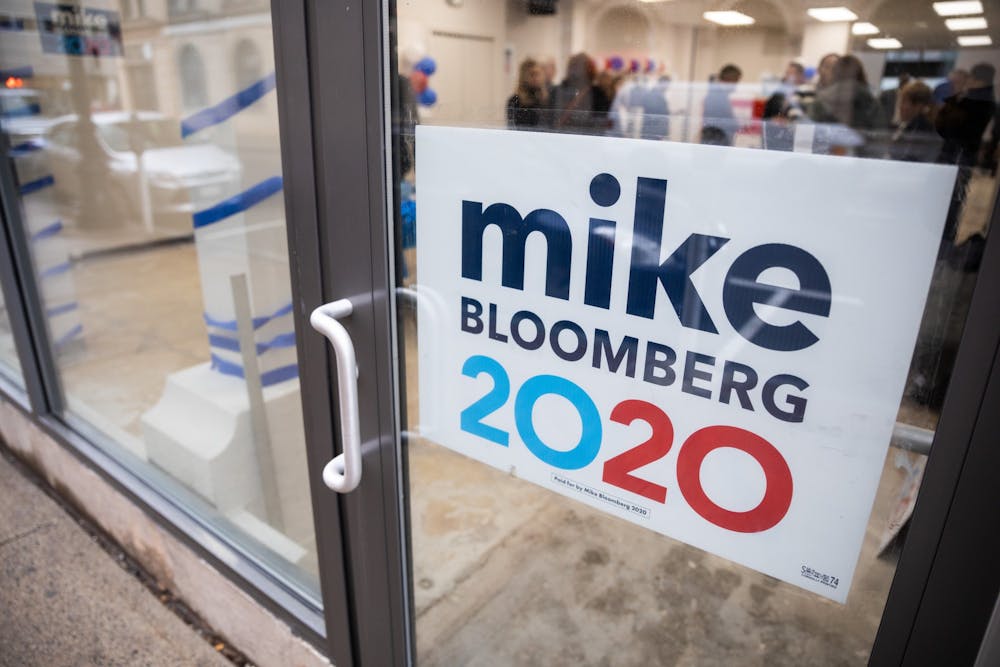In the heat of primary season, an important question to consider is whether Democratic presidential candidates Mike Bloomberg and Tom Steyer, who have little to no political experience, belong in the national spotlight simply because of their wealth.
Luckily, voters are not being persuaded by either of the candidates’ scorched earth advertising strategies. Despite concerns about money in politics, we are not in danger of the wealthy buying elections for themselves.
Bloomberg, a former Wall Street investment banker at Salomon Brothers out of Harvard Business School, has an estimated net worth of $61.8 billion. He also served as mayor of New York City from 2002 to 2013. Steyer, a former hedge fund manager at Farallon Capital out of Stanford School of Business, has an estimated net worth of $1.6 billion. Both candidates are largely self funding, and neither have significant support among voters.
As of Feb. 12, Bloomberg was polling at 14.1% nationally while Steyer was polling at 1.8% nationally. While Bloomberg is currently surging in national polls, it's worth noting that his spike is recent — in late December and early January, he was only polling at around 5%. He is not even on the ballot in the early states, meaning he would have to perform extremely well after Super Tuesday to have a path toward the nomination.
Regardless of how much a candidate self-funds — Bloomberg has reportedly donated over $310 million to his own campaign since Jan 1, 2019 — unless they present a message that resonates with voters, they are unlikely to gain traction. Candidates like Sen. Bernie Sanders, I-Vt., and former mayor of South Bend, Indiana, Pete Buttigieg, while both privately wealthy, have succeeded not because of their wealth, but because of their message and persona.
Bloomberg has run primarily on a platform of gun control, while Steyer has based his campaign on climate change. Neither of these candidates have shown political dexterity in responding to a broad variety of issues. Steyer has no political experience, and Bloomberg, though mayor of New York for 10 years, has not leaned heavily on his record. Some have recently criticized racially disparaging comments Bloomberg made while he was mayor.
While it may not work well, should candidates be able to self-fund themselves to the nomination? The answer is yes. As an American, every citizen has a constitutional right to free speech, and Buckley v. Valeo holds that money is a crucial part of speech, and thus cannot be politically restricted. Each citizen has every right to convey whatever message they wish to whatever magnitude they can afford.
Moreover, if a billionaire chooses to inject hundreds of thousands of dollars into local television and radio markets or ground-level campaign staffers and managers, then they are helping out local economies.
Of course, this isn’t to say wealthy candidates with a relatable message and strong charisma can’t make a formidable and electable candidate; just look at President Donald Trump. But money didn’t win Trump the presidency. His message did.
So while candidates like Bloomberg and Steyer may only be in the running because of their fortunes, democracy is not in jeopardy as a result. No amount of money can replace the charisma, experience and message of a good candidate, and I predict this election season will be no different.
Brett Abbott (he/him) is a freshman studying finance and is the press secretary for College Republicans at IU. He plans to pursue a career in business or politics.






